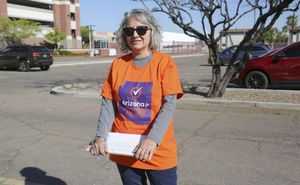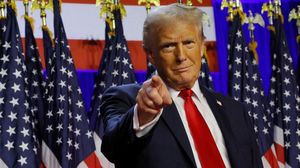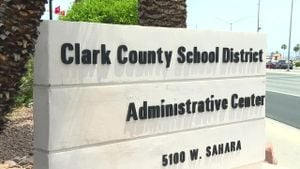President-elect Donald Trump has made headlines once again, tapping Brooke Rollins as his choice for the next Secretary of Agriculture. Having previously served as the director of the Domestic Policy Council during Trump's first term, Rollins now steps forward to take the reins of the U.S. Department of Agriculture (USDA) if confirmed by the Senate.
Trump's announcement outlined his trust in Rollins, stating, "Brooke's commitment to support the American Farmer, defense of American food self-sufficiency, and the restoration of agriculture-dependent American small towns is second to none." It’s clear the President-elect sees agricultural policy as central to his administration. If Rollins secures confirmation, she will succeed Tom Vilsack, the previous Agriculture Secretary under the Biden administration.
Rollins, 52, brings to the table her educational background from Texas A&M University, where she specialized in agricultural development, along with her law degree from the University of Texas. Before leading the America First Policy Institute, which she founded, she had various roles including working with the Texas Public Policy Foundation and advising on Trump's domestic policy agendas.
The USDA, made up of nearly 29 agencies and employing over 100,000 individuals, plays a significant role across numerous sectors—from farming and ranching to nutrition and rural development. Rollins is expected to oversee major food and agriculture initiatives, including the nation’s largest anti-hunger program, the Supplemental Nutrition Assistance Program, or SNAP.
Upon her nomination, Rollins expressed her excitement on social media, stating, “It will be the honor of my life to fight for America’s farmers and our Nation’s agricultural communities. This is big stuff for a small-town ag girl from Glen Rose, TX — truly the American Dream at its greatest.” Her passionate declaration, along with her commitment to agriculture, has garnered attention from various agricultural groups.
The American Farm Bureau Federation noted its encouragement with Rollins’ relationship with Texas’ agricultural community, hoping to build upon it if she gains Senate approval. Zippy Duvall, AFBF President, emphasized the need for strong leadership at the USDA, especially considering the current struggles faced by farmers and ranchers across the nation.
Contrarily, the nomination has received criticism from progressive groups who are concerned about her lack of formal experience within the agricultural sector. The Union of Concerned Scientists expressed doubts about Rollins' qualifications, emphasizing the necessity for the Secretary of Agriculture to have relevant agricultural policy experience.
Karen Perry Stillerman, the deputy director of UCS' Food and Environment Program, responded by saying, “This appears to be another example of President-elect Trump doling out cabinet appointments for loyalty rather than expertise.” This sentiment hints at concerns surrounding the nomination process, which some critics perceive as more about political allegiance than qualifications.
Trump's choice of Rollins ends weeks of speculation and brings her to the forefront as he fills notable cabinet posts heading toward his second term. Prior to her confirmation, Rollins might have to face questions about her agricultural expertise and how it aligns with the pressing issues currently affecting farming communities throughout the United States.
Despite these challenges, Rollins' supporters anticipate she will champion rural interests and address agricultural challenges head-on. The upcoming confirmation hearings are expected to shed more light on her approach and the policies she plans to implement as the USDA Secretary. Rollins will need to navigate the turbulent waters of agricultural economics, trade relations, and food policy effectively to gain the trust of both lawmakers and the agricultural community.
Beyond the immediate responsibilities she would undertake, Rollins’ leadership is likely to intersect with the broader policy goals of the Trump administration, especially as the President-elect decides how to manage forthcoming agricultural initiatives and potential aid packages aimed at supporting farmers.
Rollins’ influence already seems poised to extend beyond domestic policy. Discussions are swirling over how her position will interact with appointed officials like Robert F. Kennedy Jr., who has previously indicated ambitions to influence agricultural and health policies significantly.
All eyes will remain on Rollins as she balances the interests of farmers with the expectations of the administration. Her confirmation could represent the first step toward reinvigorated dialogue on agriculture policy, centered around Trump's established principles and priorities.
While the confirmation process remains uncertain, Rollins’ nomination marks yet another significant appointment for Trump’s anticipated administration. The agricultural sector is bracing to see how her leadership will shape nutrition programs, farm subsidies, and rural economic strategies—elements pivotal to the fabric of American life.
The reality of her role means she will have to engage with numerous stakeholders, from farmers and ranchers to policymakers and advocacy groups. Concerns over farming sustainability, rural community support, and the future of food production will rest on her shoulders as she steps forward with the task of guiding America’s agricultural agenda.



